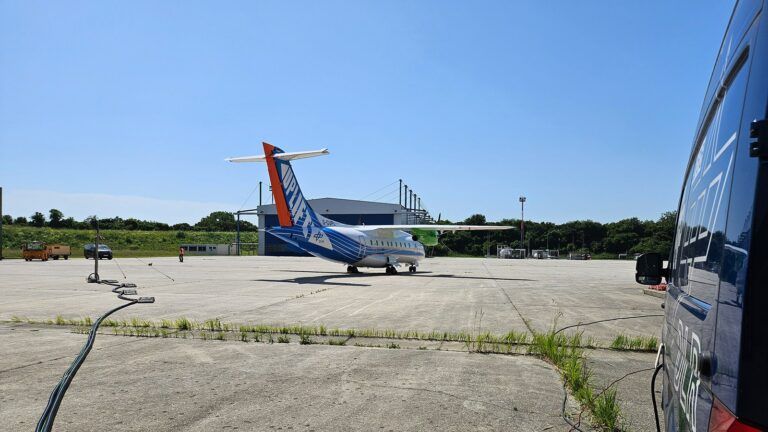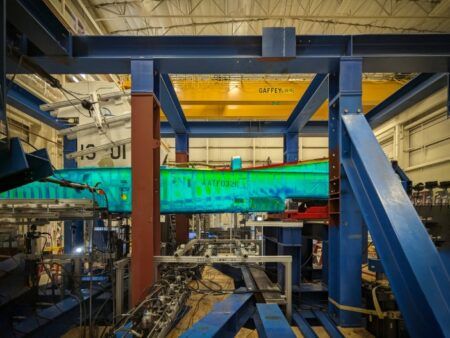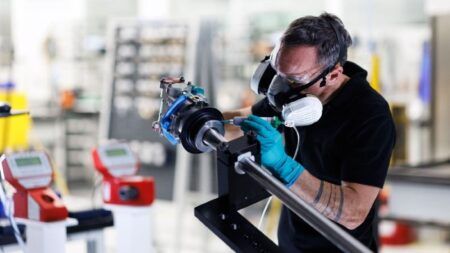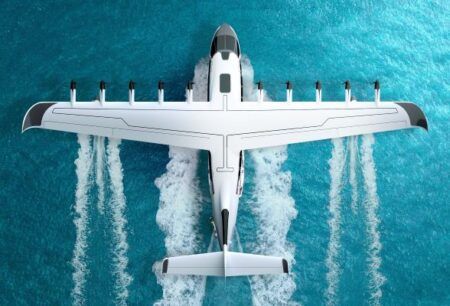German researchers have measured emissions from a turboprop aircraft powered by 100% synthetic fuel for the first time.
The German Aerospace Center (DLR) and OEM Deutsche Aircraft have completed a series of tests to measure emissions from a turboprop aircraft powered entirely by synthetic fuel. The tests, conducted at Oberpfaffenhofen Airport in Germany, are the first such measurements to be made from a turboprop using an aromatic-free power-to-liquid (PtL) proxy fuel in the world.
Researchers used the DLR research aircraft D328 UpLift for the tests, analyzing exhaust gases from both engines running on the 100% synthetic fuel. The measurements are providing data on its pollutant emissions compared to standard kerosene, filling a gap in turboprop engine research.
By analyzing exhaust gas composition, particle numbers, sizes, and distribution at various distances from the engine, researchers aim to understand the dispersion and aging of aerosols in the exhaust plume. This comprehensive approach will contribute valuable data to the ongoing efforts to develop and implement sustainable aviation fuels.
Although the D328 UpLift remained on the ground during the tests, the researchers are planning to take measurements during flight tests in October.
Nina Gaiser, head of the ground measurement campaign from the DLR Institute of Combustion Technology, said, “While the use of alternative fuels in jet aircraft has already been investigated in several studies, systematic data on the emission behavior of turboprop engines is still lacking.”
The team developed a bespoke measuring probe for the experiments and used a mobile laboratory at the airport. As pilots ran the aircraft through various thrust levels of the Landing and Take-Off Cycle, the probe collected exhaust gas samples for analysis in the laboratory.
This ground-based approach allowed researchers to examine all engine load states in detail, from low-thrust taxi operations to high-thrust take-offs. These measurements are particularly relevant for assessing air quality impacts at airports.
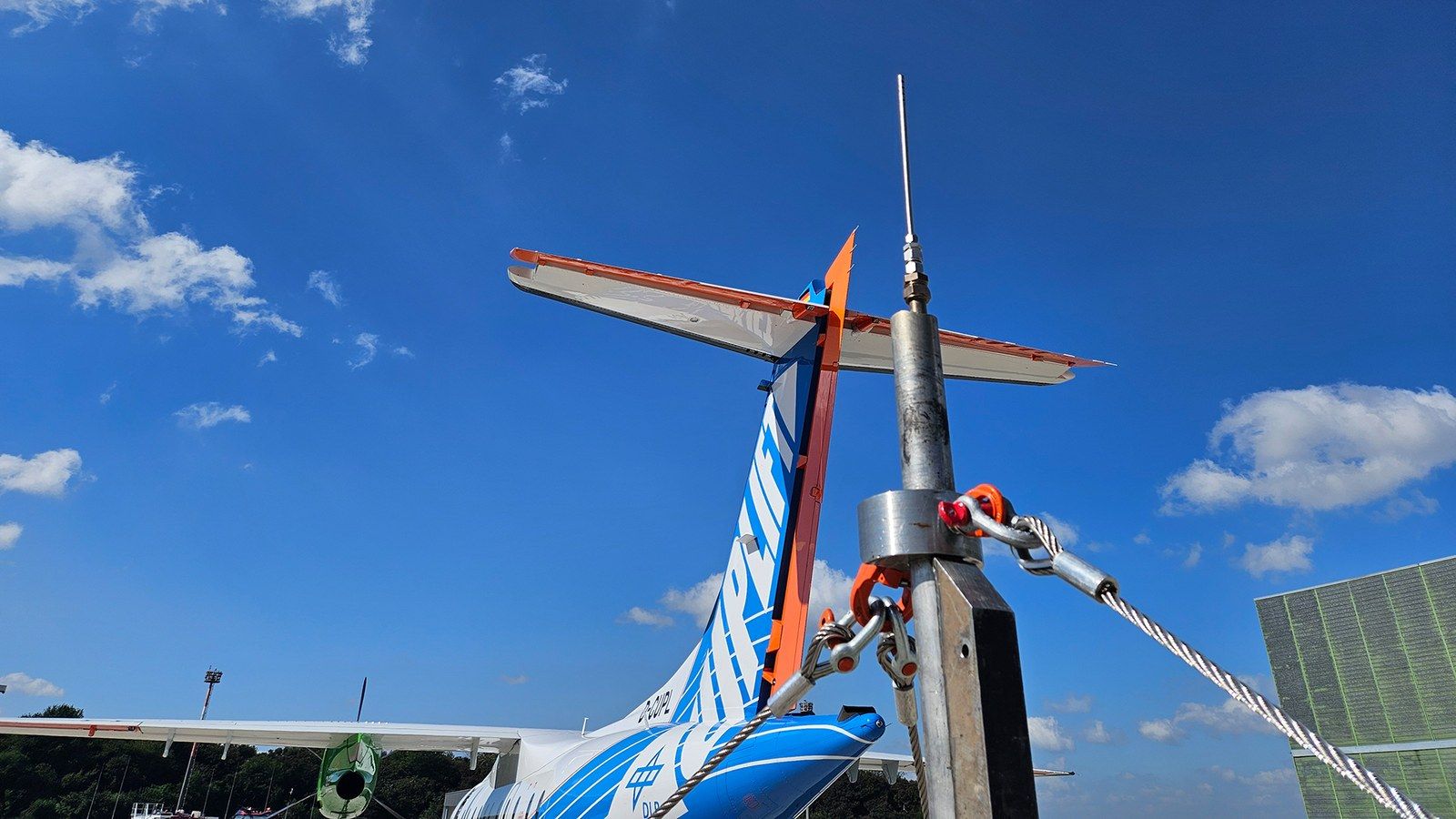
Preliminary results from earlier dual-mode tests, where one engine used PtL proxy fuel and the other conventional kerosene, showed a significant reduction in particle emissions with the synthetic fuel.
DLR said that the synthetic fuel used in the tests is chemically equivalent to future PtL fuels which are expected to reduce CO2 emissions by over 95% compared to conventional fuels. Fuel supplier Sasol provided the aromatic-free Fischer-Tropsch Synthetic Paraffinic Kerosene for the experiments.
The flight test in October will use the D328 UpLift and a Falcon 20E aircraft. The D328 UpLift aircraft joined DLR’s fleet last year and is used to test climate-friendly aviation technologies, such as fully synthetic or hydrogen fuels. The German Government-funded UpLift-CLIM0ART project is its first major research campaign.


